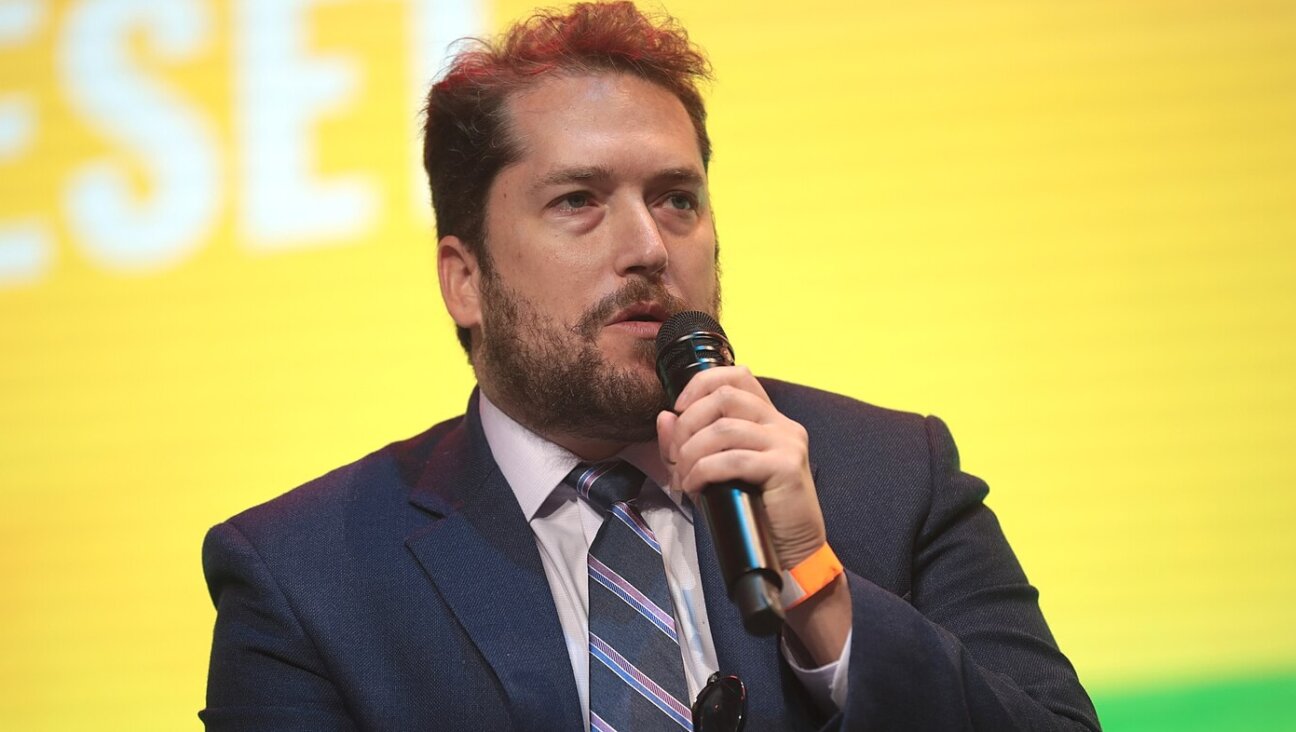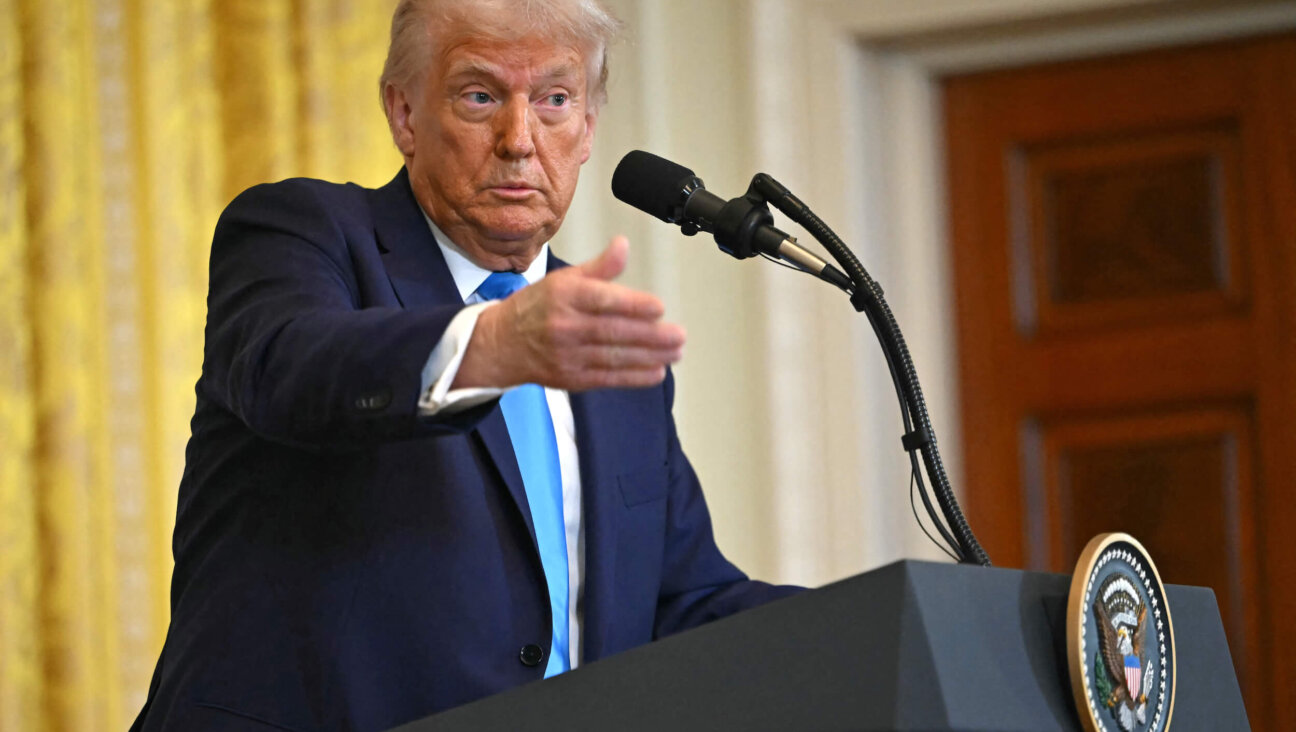Former Jewish Studies Association presidents alarmed by response to shamed sociologist

Professor Noam Pianko resigned from his post as president of the Association for Jewish Studies. Courtesy of University of Washington
Eleven past presidents of a prominent Jewish studies organization published a letter this week expressing concerns about the recent resignation of the group’s immediate past president.
Noam Pianko, a historian who chairs the Jewish Studies department at the University of Washington, resigned from his position as president of the Association for Jewish Studies (AJS) on April 13 after acknowledging that he had taken part in a controversial, invitation-only gathering co-facilitated by Steven M. Cohen, a prominent sociologist accused of sexually harassing female colleagues.
The letter of concern — initially published by the AJS executive committee on April 20 on the association’s website, only to be removed two days later in response to overwhelming pushback from AJS members — expressed “sorrow and pain at the events surrounding the resignation of AJS president, Professor Noam Pianko.” The letter went on to implore members to “commit themselves anew” to the organization’s founding principles, including the commitment to “academic freedom,” opposition to “boycotts and blacklists,” and the “right of all members to articulate beliefs and positions without fear of retribution.”
Jonathan D. Sarna, a professor of Jewish History at Brandeis University and one of the AJS past-presidents who signed the letter, said he was “quite horrified” after learning of Pianko’s resignation following his participation in a March 11 Zoom conversation involving Cohen. After the joint-statement was removed by the AJS executive committee on Thursday, Sarna posted the statement on his personal Facebook page.
“Anybody ought to be able to talk and learn from whoever they want — it should not be AJS’ business to pass judgement on that,” he said. He compared the recent “censure” of academics who chose to participate in the exclusive gathering with Cohen to the “old days of McCarthy.”
“This principle of ‘contagion’ is deeply disturbing — if this individual did something wrong, then nobody may speak to or associate with him,” said Sarna. “It is not a principle that AJS, or any reasonable academic society, should adhere to.” Sarna acknowledged a generational divide between the “old guard” at AJS, including himself and many of the presidents who signed the letter, and “younger members” who largely supported Pianko’s resignation.
“Younger members have different views because they don’t remember the blacklists of the fifties,” he said. He said the letter was an attempt to fight back against the sentiment that “past presidents should be seen and not heard.” In his resignation letter earlier this month, Pianko apologized for his “lapse in judgement” in joining a March 11 conversation with Cohen and other colleagues.
“In my leadership capacity as AJS President, I should have recognized the power dynamics at play and realized the ways that my personal involvement, regardless of my own intention, would reflect on our organization,” Pianko said in the resignation letter.
Steven M. Cohen lost his academic position and other public roles in the Jewish community in 2018 after five women accused him of sexual misconduct connected to the workplace. But earlier this year, several prominent Jewish Studies professors held at least four invitation-only conversations about the state of American Jewish life with Cohen, prompting backlash from many feminist scholars about the pressure junior colleagues might face to participate.
In the March 23 statement, the executive committee of AJS highlighted the “harms and risks” of such meetings, which were seemingly intended to rehabilitate the formerly prominent Cohen.
“Such engagements opened still-painful wounds for those who were harmed by Cohen and put others at risk professionally if not personally,” read a similar statement released by the AJS Women’s Caucus.
CORRECTION:The original version of this story mistakenly stated that Noam Pianko was forced to resign as president of the Jewish Studies Association. His resignation was voluntary.
A message from our Publisher & CEO Rachel Fishman Feddersen

I hope you appreciated this article. Before you go, I’d like to ask you to please support the Forward’s award-winning, nonprofit journalism so that we can be prepared for whatever news 2025 brings.
At a time when other newsrooms are closing or cutting back, the Forward has removed its paywall and invested additional resources to report on the ground from Israel and around the U.S. on the impact of the war, rising antisemitism and polarized discourse.
Readers like you make it all possible. Support our work by becoming a Forward Member and connect with our journalism and your community.
— Rachel Fishman Feddersen, Publisher and CEO





















